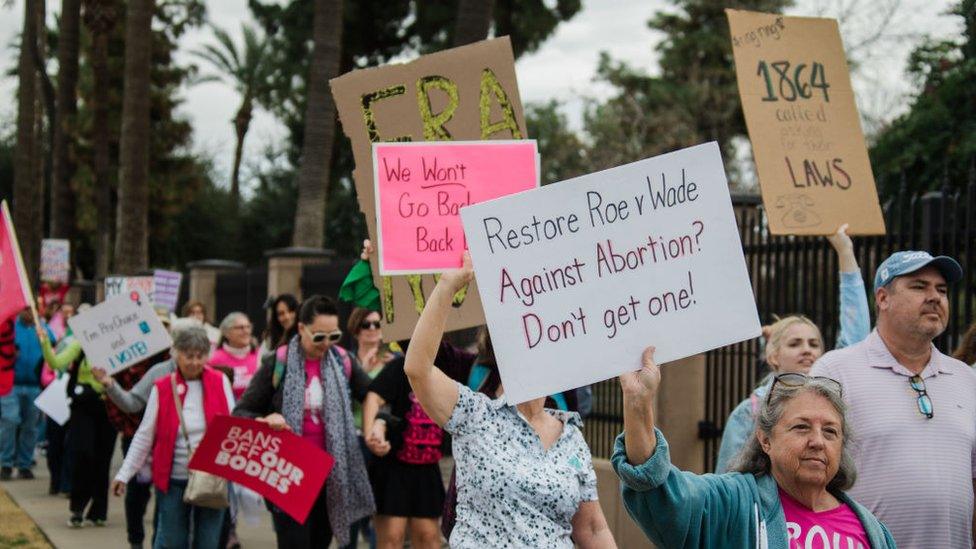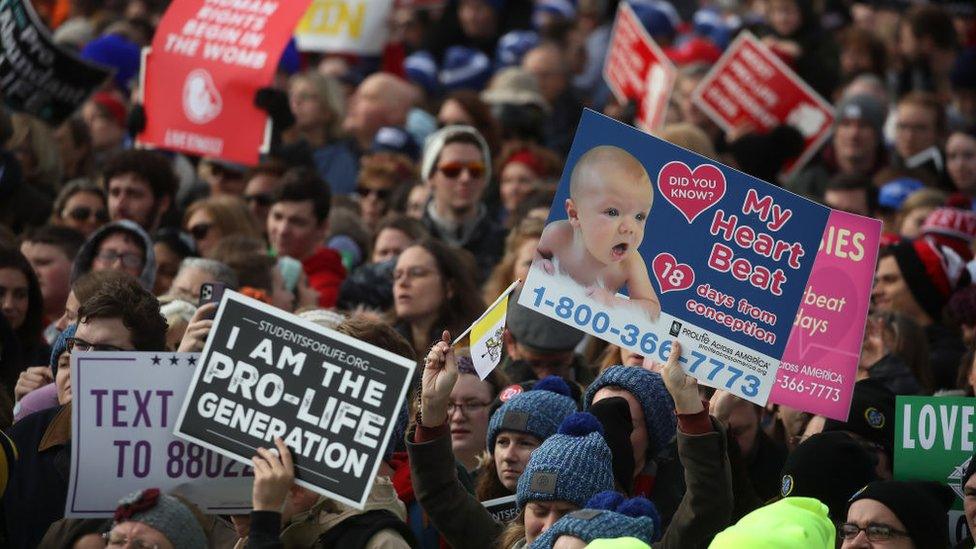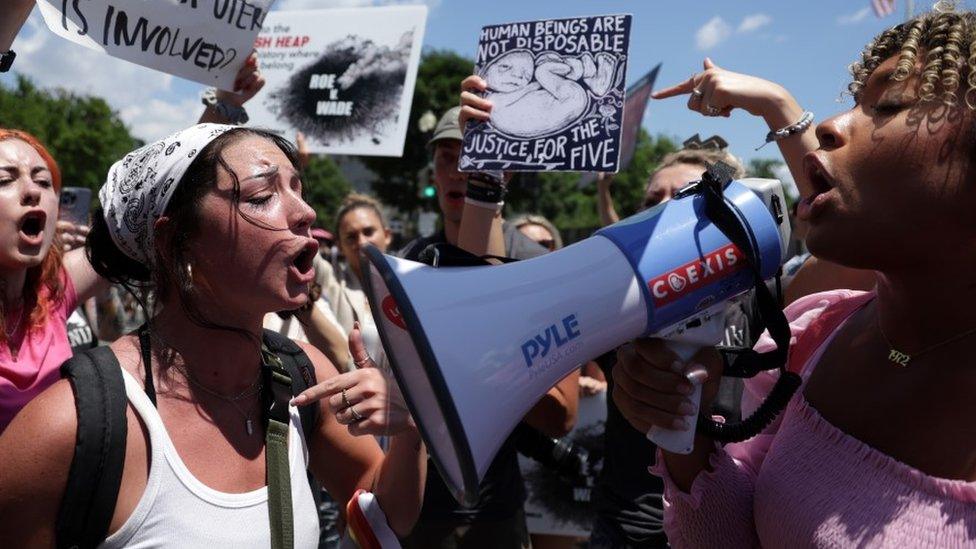Arizona Supreme Court reinstates near-total abortion ban from 1864
- Published

The decision may shutter all abortion clinics in Arizona
The Arizona Supreme court has ruled that the state can enforce a 160-year-old near-total abortion ban.
The 1864 law - which precedes Arizona becoming a state - makes abortion punishable by two to five years in prison, except when the mother's life is at risk.
The ruling could shutter all clinics in the state, and affect both women's healthcare and the coming election.
Arizona voters may be able to undo the ruling in a November referendum.
The decision follows months of legal wrangling about whether the pre-statehood law could be enforced after years of dormancy. Many argued it had been effectively nullified by decades of state legislation, including a 2022 law that allows abortions until 15 weeks of pregnancy.
Arizona's top court agreed to review the case in August 2023 after a right-wing legal advocacy group, Alliance Defending Freedom, appealed against a lower court ruling that said the more recent law should stand.
In a 4-2 ruling on Tuesday, the state supreme court overturned that decision. It said the 1864 law was "now enforceable" because there were no federal or state protections for the procedure.
The Alliance Defending Freedom joined anti-abortion activists in celebrating the decision, saying the "significant" ruling would "protect the lives of countless, innocent unborn children".
Arizona's Supreme Court delayed enforcement of the law for 14 days, and the justices sent the case back to a lower court to hear further arguments.
But it remains unclear how the law will be enforced.
Governor Katie Hobbs, a Democrat, issued an executive order last year that placed the matter of enforcing abortion law in the hands of state attorney general Kris Mayes - a fellow Democrat who has promised that Arizonans will not be prosecuted for getting or performing an abortion.
Ms Mayes reiterated that promise on Tuesday, calling the law "draconian".
"Today's decision to reimpose a law from when Arizona wasn't a state, the Civil War was raging, and women couldn't even vote will go down in history as a stain on our state," she said, criticism that was soon echoed by the White House and other leading Democrats.
Some Arizona Republicans also expressed concerns about the ruling.
Kari Lake, a close ally of Donald Trump and a Republican candidate for the state's seat in the US Senate, said she opposed the decision.
She called on Governor Hobbs and the state legislature to find a "common sense solution".
Ruben Gallego, Ms Lake's Democratic opponent, noted Ms Lake had previously supported the ban, pointing to a 2022 interview where she called the 1864 law "great".
"Today's ruling is devastating for Arizona women and their families," Mr Gallego added.
The owner of one abortion clinic in Phoenix said the state was "stepping back in time". Gabrielle Goodwick, of Camelback Family Planning, told the BBC that the move would affect "marginalised populations" the most.

Abortion access is supported by the majority of American voters
Abortion access - which is broadly supported among the American public, external - has helped Democrats overperform in local and state elections since the US Supreme Court overturned a landmark legal decision that protected reproductive rights nationwide.
The issue is now expected to influence election results again in November, with Democrats hoping the issue gives them a boost in battleground states like Arizona.
Tuesday's ruling will certainly raise the stakes for a state ballot initiative that aims to protect abortion rights until 24 weeks of pregnancy.
Activists in the state say they have already met the signature threshold required to put the question to voters this autumn.
Marjorie Dannenfelser, the head of anti-abortion group Susan B Anthony Pro-Life America, indicated she would work to defeat the referendum, and hailed an "enormous victory" following the state supreme court's decision.
In the almost two years since Roe was overturned, activists who support widening abortion access have won all seven ballot initiatives related to the issue, even in Republican-controlled states.
Last week, Florida's Supreme Court gave the green light to another abortion referendum. If approved, Florida voters would overturn the state's six-week ban and enshrine broad abortion access in the state's constitution.
Related topics
- Published3 April 2024

- Published9 April 2024
